
NO&T Japan Legal Update
Japanese newsletters in connection with this article are also available.
「有価証券報告書におけるサステナビリティ開示の制度化へ ~金融審議会ディスクロージャーワーキング・グループ報告書の概要(1)~」(June, 2022)
「コーポレートガバナンスに関する開示充実・四半期開示見直し等 ~金融審議会ディスクロージャーワーキング・グループ報告書の概要(2)~」(July, 2022)
On June 13, 2022, the Working Group on Corporate Disclosure of the Financial System Council, an expert council established under the Financial Services Agency of Japan (the “Working Group”), published its report (the “Report”) regarding the proposed reformation of the corporate disclosure obligations of Japanese listed companies※1. In the Report, the Working Group proposed (i) the strengthening of non-financial disclosures, including sustainability and corporate governance information, (ii) the revision of the quarterly disclosure system and (iii) the promotion of English language disclosures and other matters. In the months ahead, the Working Group will further discuss the forthcoming detailed rules and regulations regarding the corporate disclosure reformation based on the framework formulated in the Report. After the reformation, it is expected that an Annual Securities Report (“ASR”) or other periodical report issued by a Japanese listed company under the Financial Instruments and Exchange Act of Japan (the “FIEA”) will be required to contain detailed sustainability and corporate governance information.
As seen in Europe, the United States and other countries, the Japanese Government has also been discussing the importance of non-financial disclosure by listed companies. Amid the situation where more and more domestic and foreign investors put greater emphasis on non-financial disclosures to make their investment decisions, the Working Group has discussed ways to enhance non-financial disclosures in Japan to cope with the increased demand.
Under the FIEA, each Japanese listed company is obliged to file and disclose an ASR within three months after the fiscal year end. The ASR consists of, among others, (i) an outline of the company’s business, results of operation and financial condition, including risk factors, MD&A, corporate governance and directors’ remunerations, and (ii) the audited financial statements. While some companies disclose their corporate strategy or policy regarding sustainability matters in the MD&A or other sections, there is no specific section for sustainability in the current ASR format.
In light of the above-mentioned views, in the Report the Working Group proposed creating a new section for disclosure of sustainability information. In this new section, “Governance” and “Risk Management” to cope with climate change will be disclosed by all companies. In addition, “Strategy” and “Metrics and Targets” regarding climate change will be disclosed depending on the materiality judgement by each company. Such new disclosure regime in the ASR regarding climate change is expected to essentially follow the regime that will be established by the International Sustainability Standards Board (ISSB) by the end of this year※2.
The Working Group also discussed how to enhance disclosure regarding companies’ strategy and policy on human capital and diversity. According to the Report, it is planned that “human resource development policies” and “policies on improving workplace environment” will be added to the disclosure items of the ASR. With respect to the disclosure of diversity within Japanese listed companies, “gender pay gap”, “ratio of women in managerial positions,” and “ratio of male workers taking childcare leave” will be added to the disclosure items of the ASR.
Under Japan’s Corporate Governance Code, more and more Japanese listed companies have strengthened and improved monitoring functions by their Board of Directors by increasing the number and ratio of independent directors or establishing a Nomination Committee and/or Remuneration Committee. Japanese stock exchanges, including the Tokyo Stock Exchange, have encouraged listed companies to disclose such matters in a “Corporate Governance Report”, a corporate governance disclosure document which is required under the rules of Japanese stock exchanges. In light of increased demand for corporate governance transparency, especially in relation to the monitoring function of the Board of Directors, the Working Group proposed that such information should be disclosed in the ASR as a mandatory disclosure item. Based on the Report, a new section will be created in the ASR for the disclosure of the activities of the Board of Directors, Nomination Committee, and Remuneration Committee.
Under the current disclosure regime in Japan, each Japanese listed company is subject to quarterly earning release announcement (Shihanki kessan-tanshin) disclosure obligations as required under the listing rules of Japanese stock exchanges, as well as quarterly securities report (Shihanki houkokusho) disclosure obligations required under the FIEA. Such overlapping quarterly disclosure obligations has sometimes been criticized by certain companies and market participants.
In the Report, the Working Group announced that the quarterly securities report disclosure requirements for Q1 and Q3 under the FIEA will be abolished and integrated into the quarterly earning release announcement (Shihanki kessan-tanshin) under the listing rules of the stock exchanges. The Working Group will continue its discussions on issues related to the integration of such quarterly disclosures, such as the content of disclosure, enforcement against false statements and review by audit firms.
In the Report, the Working Group also mentioned the importance of English language disclosure by Japanese companies to promote active investments by foreign investors. The Report clearly stated that the companies listed on the “Prime Market” of the Tokyo Stock Exchange are expected to proactively disclose an English version of the ASR, especially the risk factors, MD&A, corporate governance and status of shareholding sections. Based on the recommendation by the Working Group, it is expected that the FSA will publish a list of companies that disclose an English version of their ASR.
Furthermore, the Working Group pointed out the necessity of enhanced disclosure of material contracts entered into by a listed company that grants control of the listed company’s corporate governance to certain shareholder, or that restricts the transfer of shares. Based on the Report, it is also expected that greater disclosure of financial covenants of loans and bonds will be included in the revision of the relevant ordinance.
In the months ahead in 2022, the Working Group will further discuss the detailed rules and regulations regarding the corporate disclosure reformation based on the framework formulated in the Report. Although the specific schedule for the revision is not clear, according to the Japanese Government’s Action Plan, the revision of the relevant ordinance is expected to be made by the end of this year, and the Government aims to start the enhanced non-financial information disclosure from the ASR for the fiscal year ending March 2023 at the earliest. With respect to the revision of the quarterly disclosure system, since such revision requires the amendment of the FIEA, it is expected that the Government will submit a related bill in the next ordinary session of the Diet to be held in 2023.
*1
An English version of the summary of the Report is available at:
https://www.fsa.go.jp/singi/singi_kinyu/tosin/20220613/03.pdf
This newsletter is given as general information for reference purposes only and therefore does not constitute our firm’s legal advice. Any opinion stated in this newsletter is a personal view of the author(s) and not our firm’s official view. For any specific matter or legal issue, please do not rely on this newsletter but make sure to consult a legal adviser. We would be delighted to answer your questions, if any.


Chattong Sunthorn-opas, Thunsinee Sungmongkol (Co-author)


Ario Putra Pamungkas


Long Nguyen


Rashmi Grover


Chattong Sunthorn-opas, Thunsinee Sungmongkol (Co-author)


Long Nguyen


Rashmi Grover


Anastasia Jessica Maureen


Chattong Sunthorn-opas, Thunsinee Sungmongkol (Co-author)


Ario Putra Pamungkas


Rashmi Grover
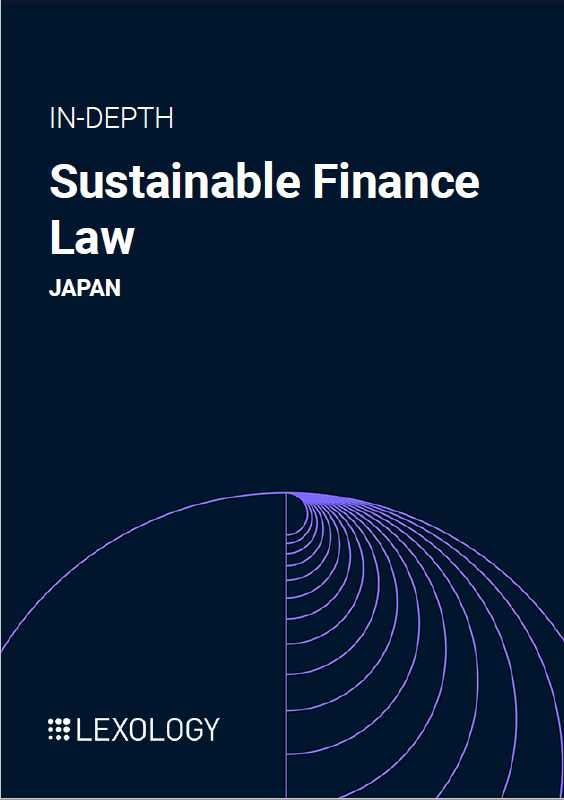

(December 2024)
Hiromi Hattori, Yuichi Miyashita (Co-author)


Takehito Matsumoto
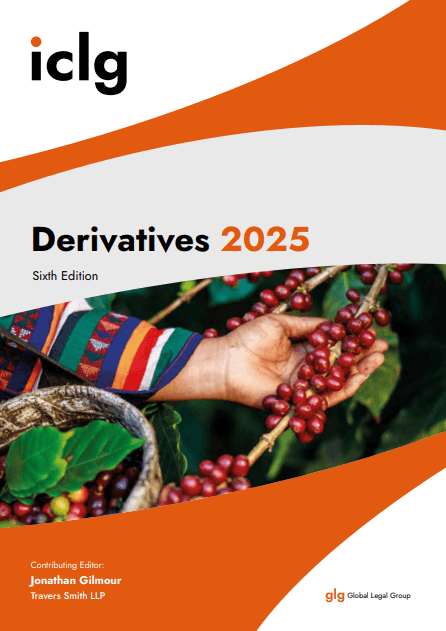

(June 2025)
Ichiro Oya, Masayuki Fukuda, Hideaki Suda, Tsutomu Endo (Co-author)
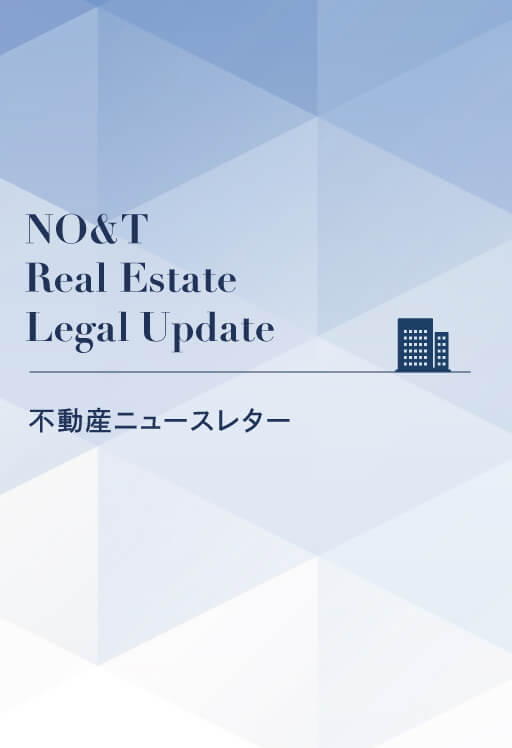

Takashi Itokawa, Takahiro Kitagawa (Co-author)
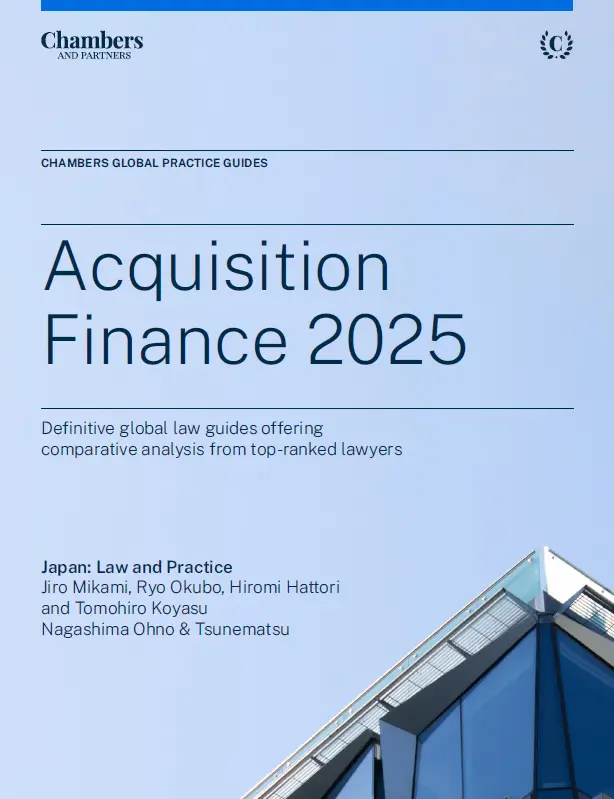

(May 2025)
Jiro Mikami, Ryo Okubo, Hiromi Hattori, Tomohiro Koyasu (Co-author)


Takashi Itokawa, Takahiro Kitagawa (Co-author)
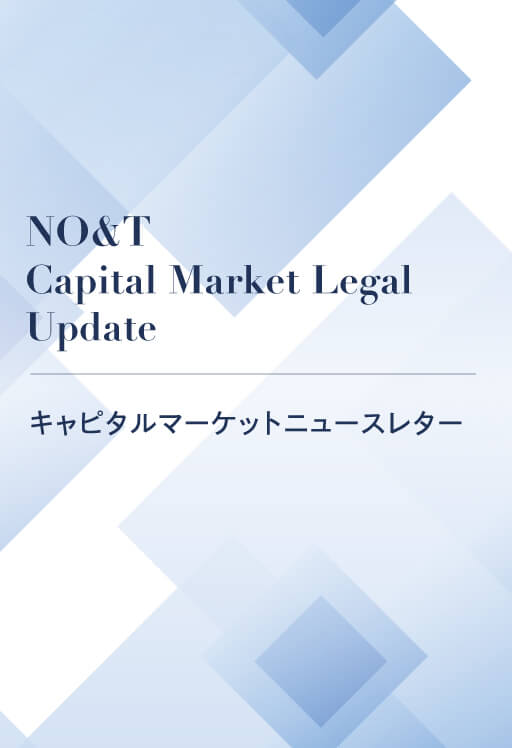

Motoki Saito, Gaku Oshima, Yuta Kawamura (Co-author)


(December 2024)
Hiromi Hattori, Yuichi Miyashita (Co-author)


Motoki Saito